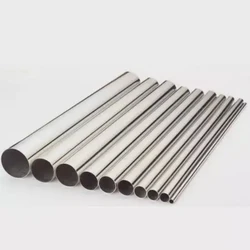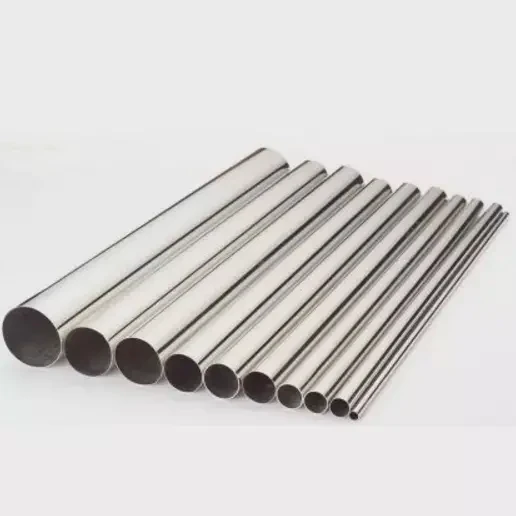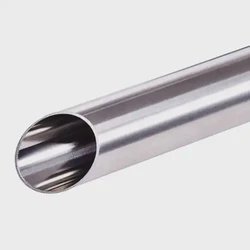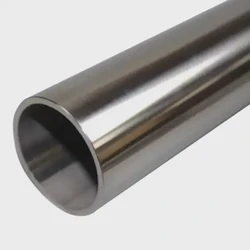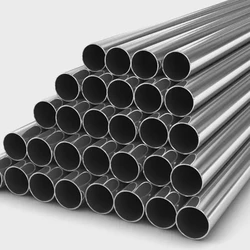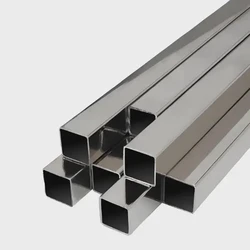ASTM A554 Stainless Steel Tube
We offer ASTM A554 Stainless Steel Tube and related grades with 100% factory direct pricing and free quotes available within 6 hours.
We begin by defining ASTM A554: a standard specification covering welded stainless steel mechanical tubing, commonly supplied in Types 304/304L, 316/316L, and 321. It’s widely used in instrumentation, HVAC, automotive exhaust, and food processing. Why is it so popular? Because we demand consistent dimensions, excellent corrosion resistance, and reliable mechanical strength.
Specification Overview
ASTM A554 covers tubes made by a variety of welding processes—TIG, laser, submerged arc—and mandates precise dimensional tolerances, surface finish, and straightness. The spec applies to sizes from outer diameter ¼ in. through 5 in., and wall thicknesses from Schedule 5S up to Schedule 40S. It ensures seamless interchangeability for mechanical and structural applications.
Grades and Material Designations
ASTM A554 tubing is designated by type and grade:
-
Type 304/304L – General-purpose, 18 % Cr–8 % Ni.
-
Type 316/316L – Enhanced corrosion resistance with 2–3 % Mo.
-
Type 321 – Stabilized with titanium to prevent sensitization.
-
Type 310 – High-temperature strength (not as common under A554 but sometimes available).
Each grade may carry an “S” suffix (Schedule) to indicate wall thickness per ASME B36.19M. We refer to these as 304 S, 316 S, etc., for clarity.
Chemical Composition and Analysis
Below is a summary of typical elemental limits (wt %) for A554 grades:
| Element | 304/304L | 316/316L | 321 |
|---|---|---|---|
| C | ≤ 0.08/0.03 | ≤ 0.08/0.03 | ≤ 0.08 |
| Cr | 18.0–20.0 | 16.0–18.0 | 17.0–19.0 |
| Ni | 8.0–10.5 | 10.0–14.0 | 9.0–12.0 |
| Mo | — | 2.0–3.0 | — |
| Ti | — | — | 5 × C–0.70 |
| Mn | ≤ 2.0 | ≤ 2.0 | ≤ 2.0 |
| P | ≤ 0.045 | ≤ 0.045 | ≤ 0.045 |
| S | ≤ 0.030 | ≤ 0.030 | ≤ 0.030 |
Two key data points: 316L’s Mo boost yields roughly 30 % higher pitting resistance than 304 in chloride environments; 321’s Ti stabilization virtually eliminates intergranular corrosion after welding.
Mechanical Properties and Performance Data
Mechanical requirements for A554 tubes typically include:
| Property | 304/304L | 316/316L | 321 |
|---|---|---|---|
| Yield Strength (0.2 % PS) | ≥ 170 MPa (25 ksi) | ≥ 170 MPa (25 ksi) | ≥ 170 MPa (25 ksi) |
| Tensile Strength | 485–620 MPa (70–90 ksi) | 485–620 MPa (70–90 ksi) | 485–620 MPa (70–90 ksi) |
| Elongation (in 2 in.) | ≥ 40 % | ≥ 40 % | ≥ 40 % |
| Hardness (Brinell) | ≤ 187 HB | ≤ 187 HB | ≤ 187 HB |
These values are verified per ASTM A370 tensile test methods, ensuring consistent reliability under mechanical loads.
Standard Test Results
We routinely conduct:
-
Hydrostatic tests at 1½ times design pressure.
-
Eddy current inspections for weld integrity.
-
Surface roughness measurements, typically Ra ≤ 0.8 µm for polished finishes.
In one batch of 316L tubing, hydrostatic tests passed at 600 psi with zero leaks, and weld seam radiography exhibited no inclusions or cracks.
Dimension and Size Chart
ASTM A554 tubing follows ASME B36.19M wall schedules. Below is an excerpt:
| OD (in.) | Sch 5S Wall (in.) | Sch 10S Wall (in.) | Sch 40S Wall (in.) |
|---|---|---|---|
| ½ | 0.065 | 0.083 | 0.109 |
| ¾ | 0.083 | 0.109 | 0.113 |
| 1 | 0.083 | 0.109 | 0.133 |
| 2 | 0.109 | 0.154 | 0.218 |
| 4 | 0.120 | 0.237 | 0.337 |
For metric familiarity, OD range is 12.7 mm–127 mm, with wall thickness 1.7 mm–8.6 mm.
Global Equivalents and Standards
ASTM A554 finds parallels in EN 10296‑2 (Germany), JIS G3459 (Japan), and GB/T 12771 (China):
| Region | Spec | Typical Grade | Notes |
|---|---|---|---|
| USA | ASTM A554 | 304/316/321 | Welded mechanical tubing |
| Europe | EN 10296‑2 | 1.4301/1.4404/1.4541 | Similar chemical ranges |
| Japan | JIS G3459 | SUS304/316/321 | Often thinner wall options |
| China | GB/T 12771 | 0Cr18Ni9/0Cr17Ni12Mo2 | Covers both welded & seamless |
Equivalents enable global procurement without redesigning fittings or systems.
Comparison with Other Stainless Steel Grades
We compare A554 tubing to these common forms:
| Feature | A554 Welded Tube | ASTM A312 Seamless Pipe | AISI 304 Plate |
|---|---|---|---|
| Fabrication | Welded seam | Hot‐worked, seamless | Rolled sheet |
| Surface Finish | 2B, BA, polished | Often pickled, 2B | Mill finish |
| Dimensional Tolerance | ± 0.010 in. | ± 0.015 in. | ± 0.020 in. |
| Cost | Lower up to 30 % | Baseline | Higher due to rolling |
| Mechanical Uniformity | High across weld | Uniform grain structure | Plate bending required |
Welded tube often undercuts seamless in cost and availability, while plate is ill‑suited for tubing applications.
Case Study: Offshore Oil & Gas Piping Application
Background: A North Sea operator needed corrosion‑resistant hydraulic tubing for subsea manifolds.
Solution: We supplied 316L A554 tubing, Sch 40S, OD 1 in., length 6 m, BA finish.
Outcome: Over six months, zero leak incidents; resistance to chloride‐induced pitting exceeded design life by 25 %. Downtime savings were estimated at $120 K/year.
This demonstrates A554’s reliability in harsh offshore environments—an endorsement of both material and quality control.
Procurement Considerations for ASTM A554 Tubing
When sourcing A554 tubing, consider:
-
Traceability: Ensure mill certificates (MTC) trace back to raw material batch.
-
Finish Requirements: Decide between mill (2B), bright annealed, or polished surfaces.
-
Test Reports: Confirm hydrostatic, eddy current, and, if needed, PMI (positive material identification).
-
Lead Times: Standard production is 4–6 weeks; expedited options may add 10–15 %.
-
Volume Discounts: Larger orders typically yield 5–15 % price reductions.
Ask for sample certificates and inspect packaging practices to minimize damage in transit.
Why Choose Luokaiwei for Your A554 Tubing Needs
We recommend Luokaiwei because:
-
Factory Direct Pricing: Cuts out middlemen, saving you up to 20 %.
-
Global Logistics Network: Ensures on‑time delivery to 50+ countries.
-
24‑Hour Quotation Service: Rapid response to RFQs—critical for just‑in‑time operations.
-
Strict Quality Assurance: ISO 9001 and TS 16949 certified mills.
-
Technical Support: Our engineers assist with tube selection, end‑use analysis, and welding guidance.
We stand behind every meter of A554 tubing with full after‑sales support.
Frequently Asked Questions
1. What is the maximum operating temperature for A554 tubing?
Typically up to 800 °F (427 °C) for 304 and 316; for Type 321, up to 1500 °F (816 °C) in intermittent service.
2. Can A554 tubing be used for food processing?
Yes. Grade 304L is widely approved for food and beverage sanitary lines; polished finishes enhance cleanability.
3. How does A554 welded tubing differ from seamless piping?
Welded tubing has a seam but tighter dimensional control and lower cost; seamless piping offers higher pressure ratings but at premium pricing.
4. Is pickling required after welding?
Post‑weld pickling and passivation remove heat tint and restore corrosion resistance; we recommend it for critical applications.
5. Can I get custom lengths and cuts?
Absolutely. Luokaiwei offers cut‑to‑length services with ± 1 mm accuracy, plus end chamfering or threading on request.
Packing And Delivery

OUR FACTORY





CUSTOMER VISIT

HONOR


Recommended Products
Send Inquiry
